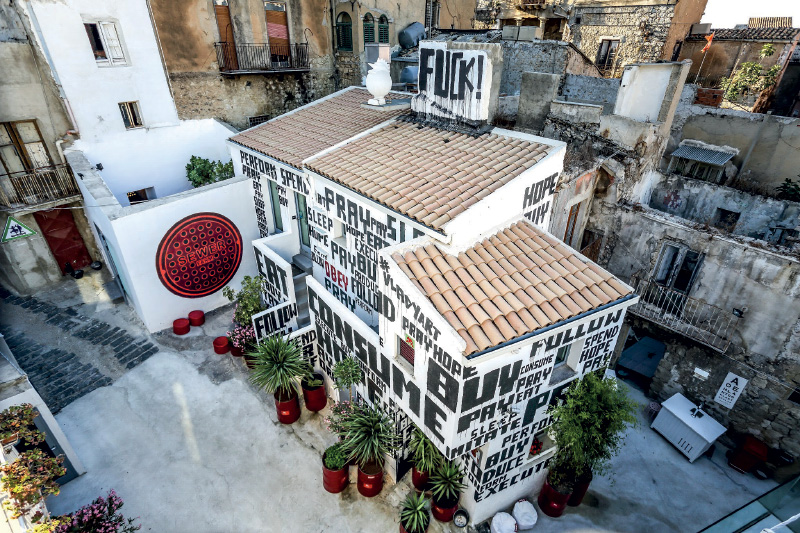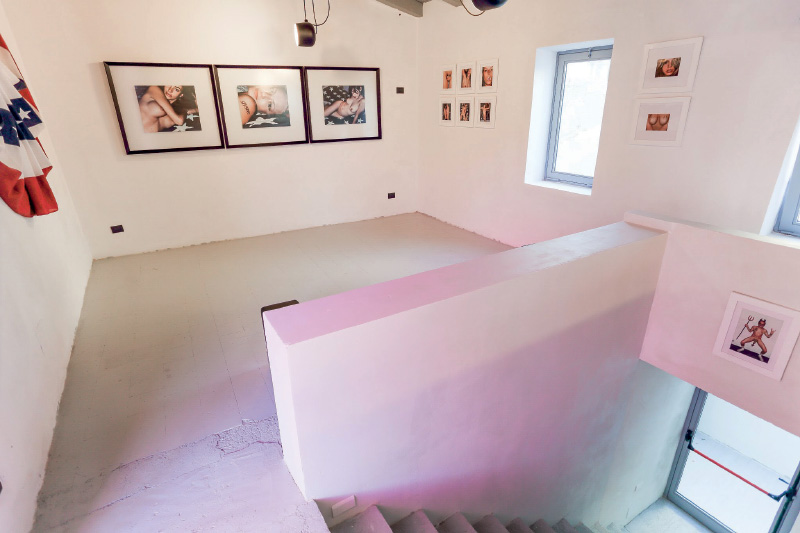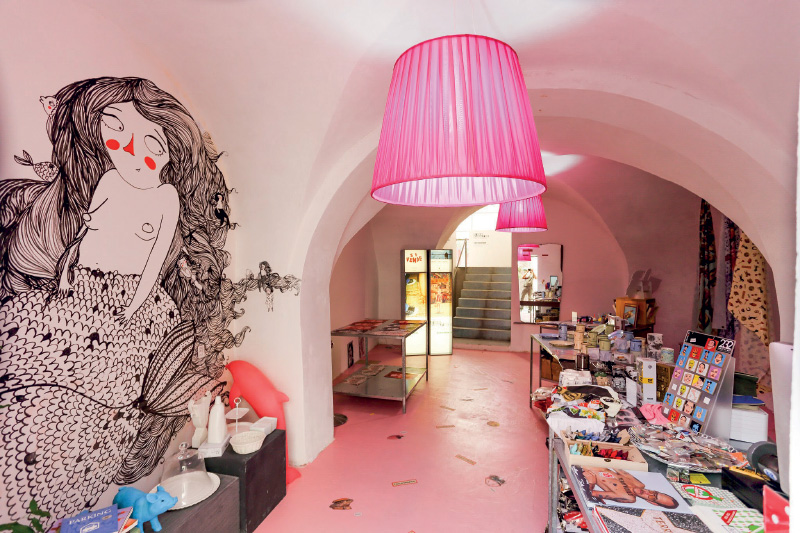Until recently, it was only a small village living nearly in total anonymity. Even authorities had abandoned it to its fate: just a geographical point situated in our wonderful island. However, Favara, few steps from the Valle dei Templi, forgotten and excluded from tourist itineraries, has redeemed itself, or better, Andrea Bartoli and his wife Florinda Saieva redeemed it as “deus ex machina”. He’s a notary and she’s a lawyer, connected by a great passion for contemporary art and above all for their region. In 2010, they decide to bravely and determined do something not only for themselves, but also for the community by shaking (positively) the boring days of the inhabitants. They decide to convert the impoverished centre of Favara into a touristic cultural park. Today “Farm Cultural Park” is the payback of the small village included in the six international tourist destinations to visit. Admiring and infected by those who still believe in being able to create a better world and inventing new ways of thinking and doing culture, we interviewed Andrea Bartoli, the creator of such beautiful project.
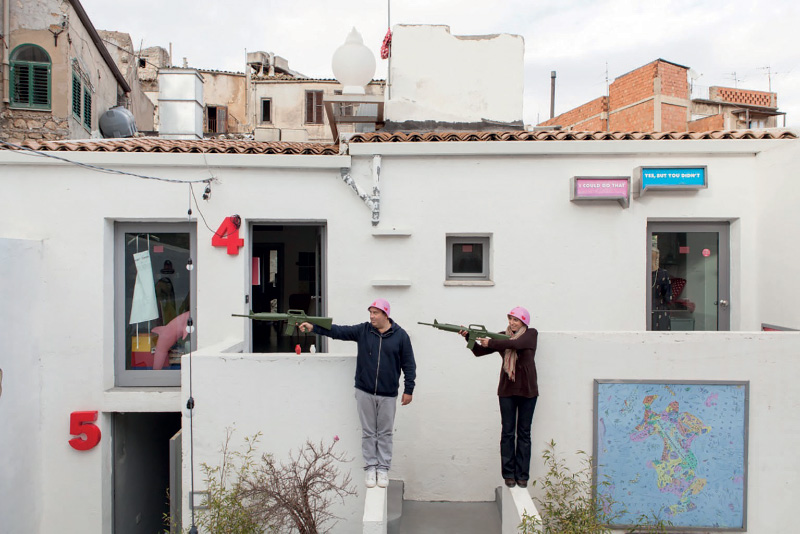
Andrea Bartoli and Florinda SaievaWhere does the idea of creating a project named farm cultural park come from?
My wife Flò and I had a sound wish: living in Sicily and being able to be fine. Together with this wish, there was the need to create a fertile and stimulating environment for out two girls, but also the awareness to taking a responsibility towards the small piece of world we live in.
What does the Arab Kasba has in common with the seven Bentivegna courtyards of Favara?
Place Jamaa el Fna, the main square of Marrakech, around which Medina is developed, is the main place of inspiration of the Farm Cultural Park project. The Seven Courtyards are a Sicilian Kasba where small white architectures are spaced out by seven small courts hiding two wonderful gardens. Last June we inaugurated Riad Farm in one of these, a place intended to be used as relax and hospitality area.
The London blog Purple Travel placed you in sixth position to be visited among the international destinations for contemporary art lovers. Did you expect such acknowledgement?
They have been very generous to compare us with the most important capitals of the contemporary art world. However, what in my opinion really makes our experience unique is the power of transformation this project affected the whole town with, as well as the effects it is causing all over Sicily. I would like to highlight that the experience of Farm gave life to Boom-Urban Lungs; a project that will award three Sicilian cities by means of a contest over the next few months, in order to make Urban Lungs that have the power to change identity of the hosting towns, just like Farm with Favara, and that can give a future dimension to such towns.
What are the artistic-cultural events you promote, and whom are they directed to?
We mainly promote appointments connected to contemporary culture, but are very interested in topics as low-definition architecture, public design, urban agriculture. Culture is a noble tool here, which gave life to a small community of dreamers who didn’t give up the idea of living in a nicer, more ethical and cosmopolite Sicily yet.
What changed in the tourist sector of your town since 2010 and how did the inhabitants of Favara react?
Until five years ago, Favara was a place excluded from any tourist itinerary. Today, it’s a small capital of culture, Lonely Planet gave us such an important review that we are actually embarrassed, just about every newspaper around the world talked about Farm and we welcome tourists every day. In a town that had nothing to offer now B&B’s and restaurants increase a hundredfold, and there is no property in the historical centre that is not in restoration stage with touristic-cultural purpose.
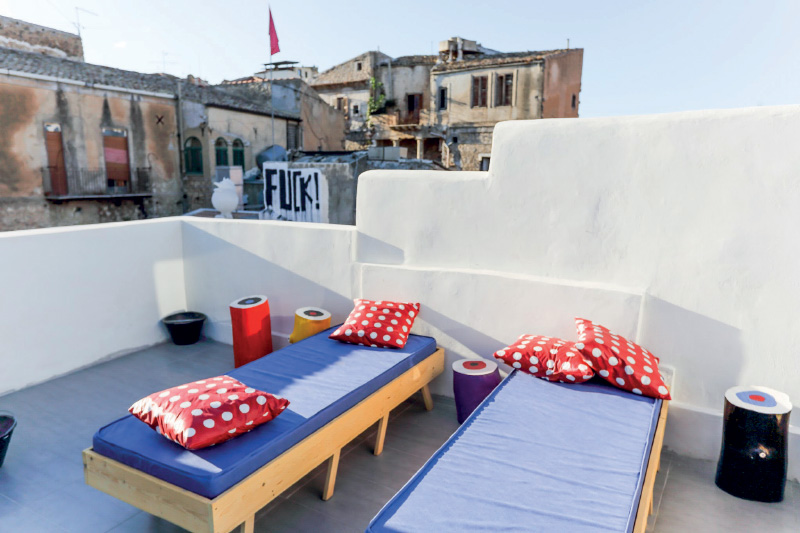
Song suggested to read this article: You’re an artist – Morphine

